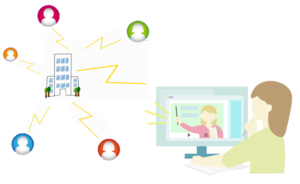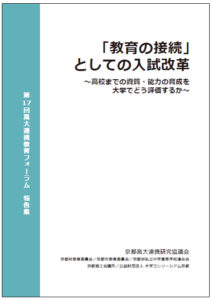Experiences of University Consortium Kyoto Internship Program Graduates
![]()
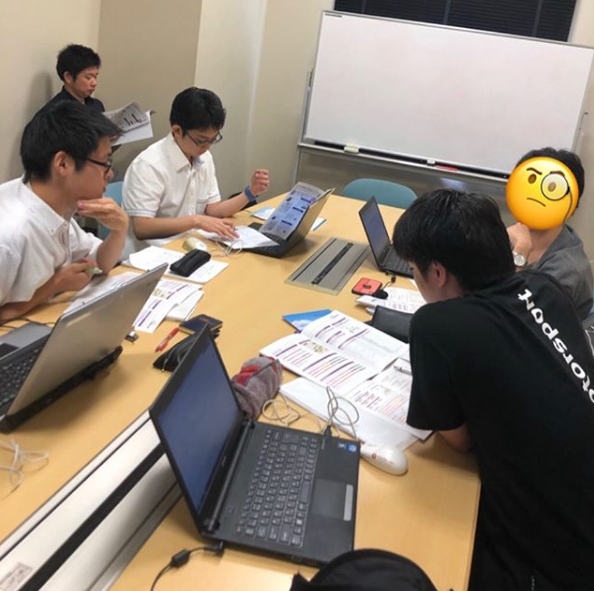
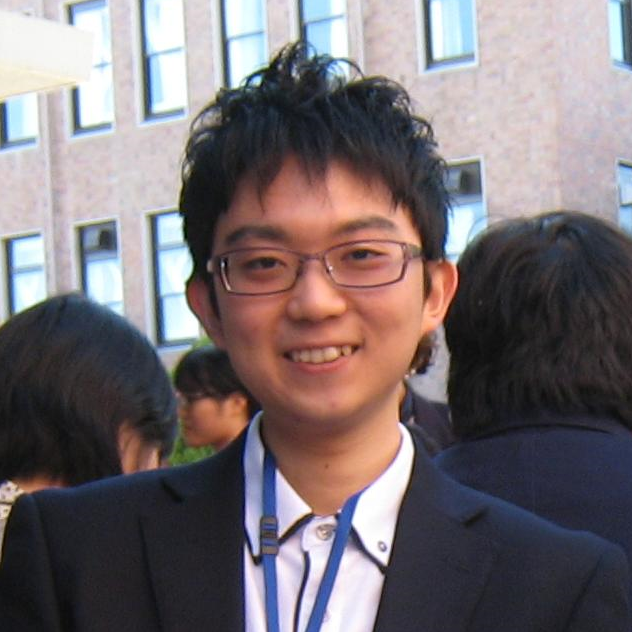
Doshisha University Faculty of Law 3rd year student Mr./Ms. Umegaki
Internship: Doshisha University
Q. What made you decide to take an internship at the University Consortium Kyoto?
A. I was interested in university staff, and when I was researching, I found that this internship program had a university to train. I took the course because I thought I would be able to experience various things in a long period of 10 days.
![]()
Q. What kind of training was it?
A. It was a practical training that could only be experienced if you had not participated in an internship, such as preparing for the operation of an open campus at the Admissions Center, Student Support Division, and Career Center, and presenting plans in PowerPoint.
![]()
Q. What do you think you have grown through the internship?
A. I had a vague idea of work, but by actually experiencing the work of university staff, I realized the importance of thinking from the other person’s point of view.
![]()
Q. What has helped you in your job hunting?
A. In the etiquette course in the pre-study, I wore a suit just like I did in actual job hunting, and I was carefully instructed on manners as a member of society, such as how to make a phone call, how to use honorifics, the angle of bowing, and how to enter the room. In addition, I was able to speak confidently at the interview, such as the industry research in the seminar class and the fact that I summarized what I learned in the practical training in a report.
![]()
Q. Message to those who are considering an internship
A. Through the internship program, I was taught manners as a member of society from scratch, and I was able to learn about various occupations in the post-study study. The coordinators and staff Mr./Ms. will treat you kindly and politely, and you will learn what you need to start job hunting, so please join us.
![]()
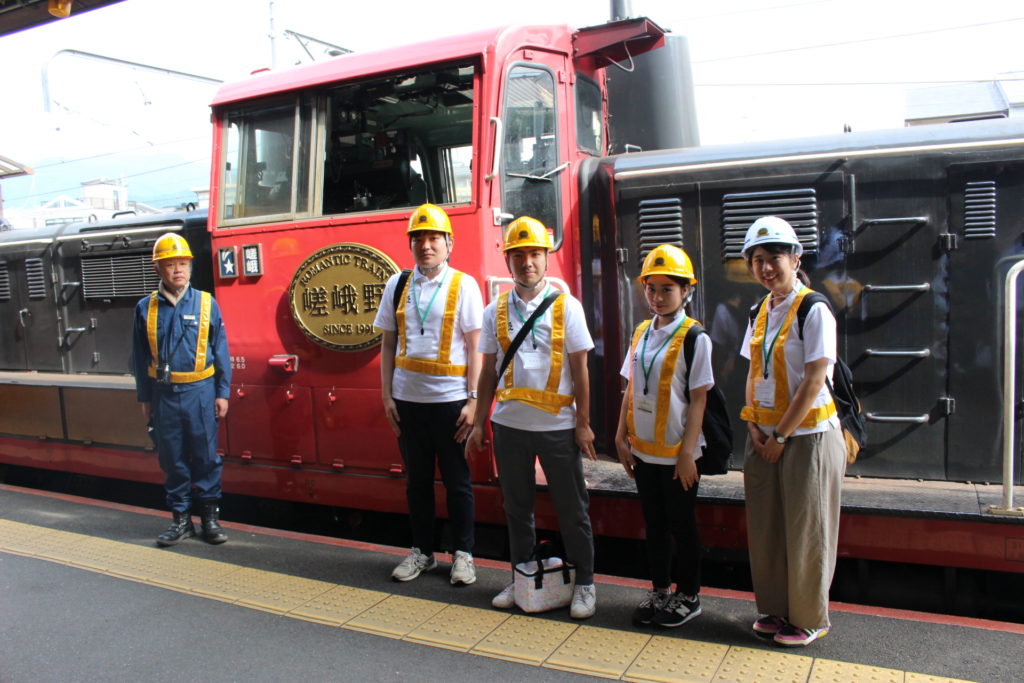
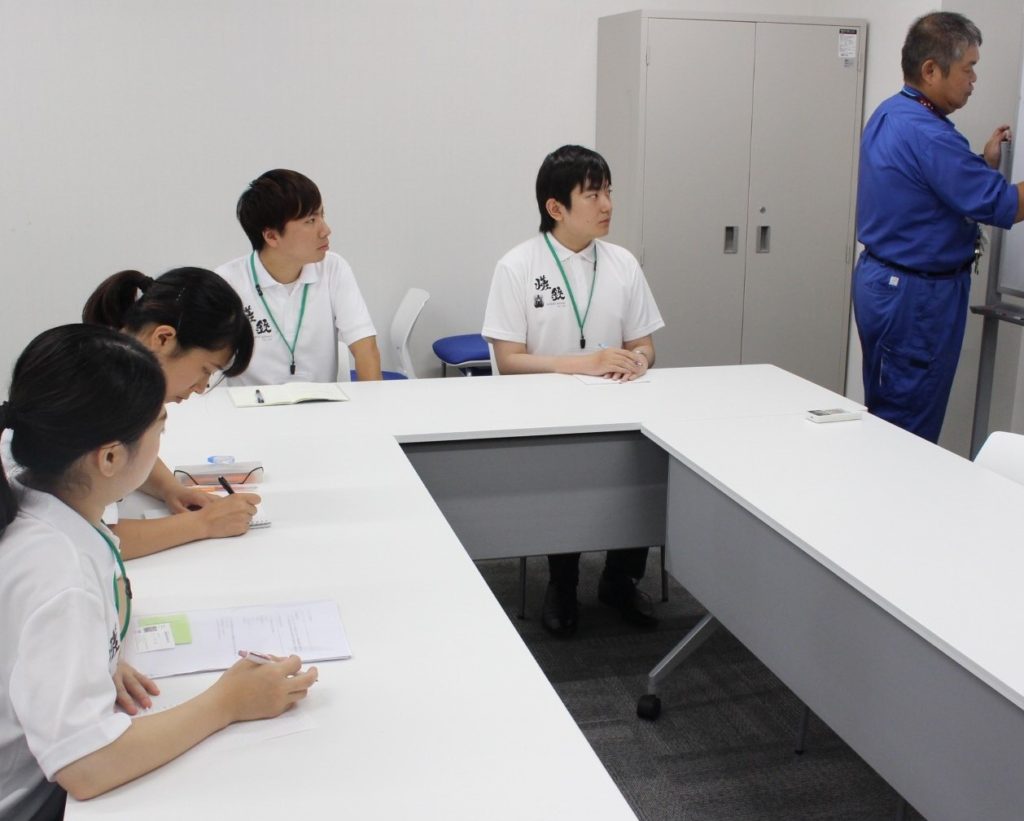
Kyoto Tachibana University Faculty of Contemporary Business 3rd year student Mr./Ms. Muraji Maika
Internship: Sagano Kanko Railway Co., Ltd.
Q. What made you decide to take an internship at the University Consortium Kyoto?
A. 3If I didn’t participate in an internship in my fresheners, I realized that I was going to start job hunting without doing anything, and I was impatient. I felt that the internship at the University Consortium Kyoto would allow me to interact with people from other universities and broaden my horizons.
![]()
Q. What kind of training was it?
A. This includes creating a dashboard for the promotion of the Sagano Kanko Railway, strengthening SNS, and creating advertisements and billboards to promote adjacent facilities. There are many people who used to work at JR, so we had the opportunity to listen to their stories.
![]()
Q. What is the atmosphere like in the workplace?
A. It was a really warm workplace. This time, four of us participated in the internship, but they respected our ideas and suggestions and actually adopted the deliverables. In addition, in order to improve our proposal, all the employees Mr./Ms. cooperated with us in translation.
![]()
Q. What did you like about the pre-study and what did you find useful?
A.In the seminar class in the pre-study, there was a quiet atmosphere due to nervousness at first, but gradually we became more relaxed. In the group work, everyone spoke up and many opinions were expressed, and the atmosphere of the seminar as a whole improved. In addition, even after the program is over, we all get together to share information on job hunting. This seminar was a very important experience for me when I was job hunting.
In the etiquette class, I learned that common sense seems to be surprisingly acquired, but in fact, it is sometimes remembered incorrectly. By actually taking the course, I felt that I was able to not only acquire the correct manners, but also to strengthen myself before going to the practical training.
![]()
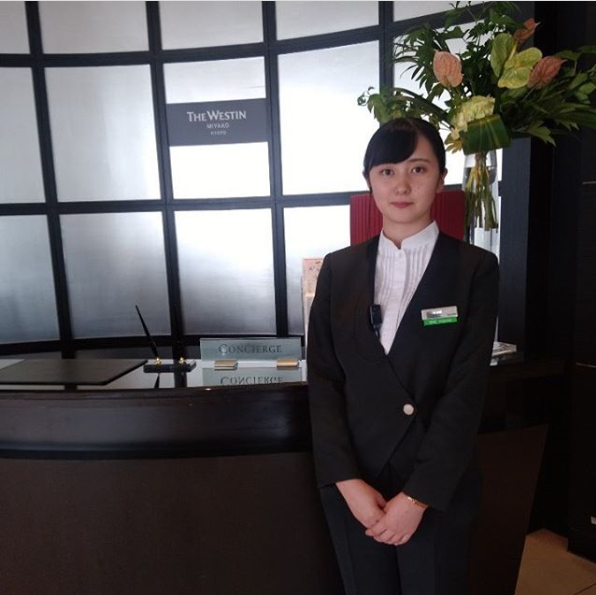
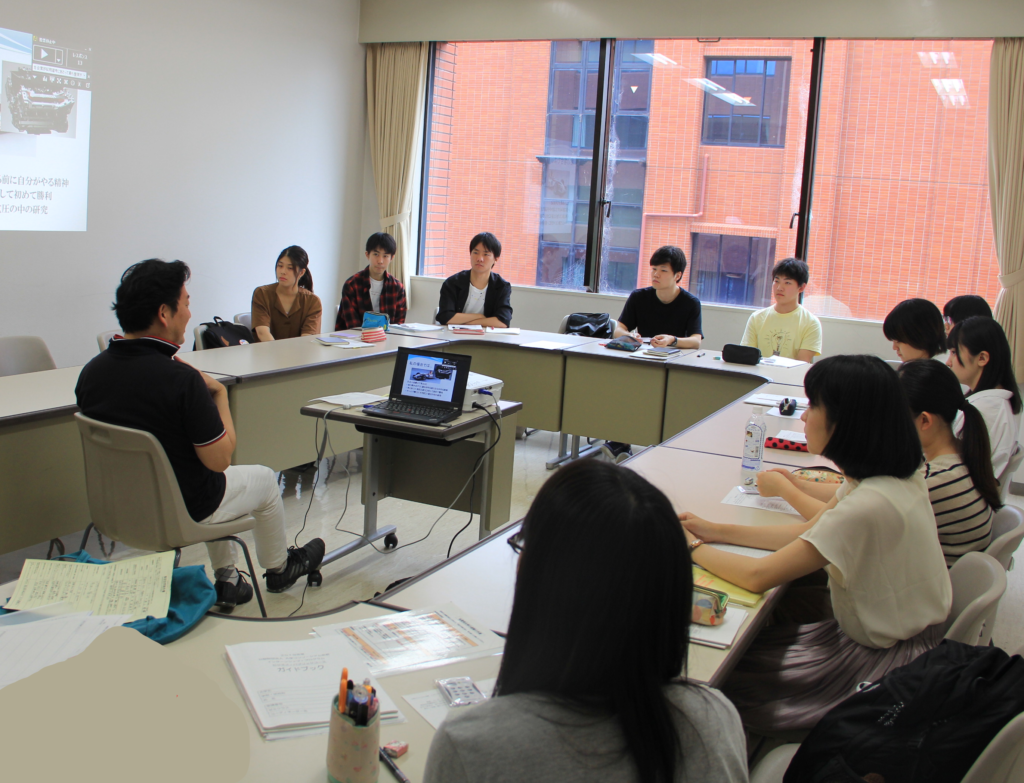
Doshisha University Faculty of Letters 2nd year student Mr./Ms. Kazuha Taniguchi
Internship: The Westin Miyako Kyoto
Q. What made you decide to take an internship at the University Consortium Kyoto?
A. I was a second-year student at the time, and I was introduced to it by a friend when I wanted to stand out from the people around me who weren’t paying much attention to job hunting, and I wanted to have something valuable during the long summer vacation. In addition, I was attracted to the fact that there was a solid pre- and post-study and that I could have contact with students from other schools.
![]()
Q. What made you decide where to train?
A. I chose it based on my interests at the time. At that time, I wanted to work in the hospitality industry and use the English I had been studying, so I chose to stay in Kyoto because I could serve many people regardless of nationality in Kyoto.
![]()
Q. What kind of training was it?
A. At The Westin Miyako Hotel Kyoto, I spent 10 days practicing. On the first day, we learned the necessary knowledge and services, and from the second day onwards, we were accompanied by employees and actually served customers. We showed the rooms, delivered them, and did everything else related to the lobby. I often used English when traveling with customers and attending to them, and although there were times when I couldn’t get the words out instantly, the customers listened to me with a smile and supported me, which was very warm.
![]()
Q. Message to those who are considering an internship
A. I participated in the second year in order to act faster than others, so I was able to have more time to think about my future job hunting and areas of interest than the people around me, and I was able to broaden my perspective much more than before I went. Also, even if the internship gave you a clear idea of the future after experiencing an industry you are interested in, or even if you think that it is not in this industry, I thought that the decision to participate was meaningful in itself. Since you’re going all the way, I want you to get what you get and enjoy it!
![]()
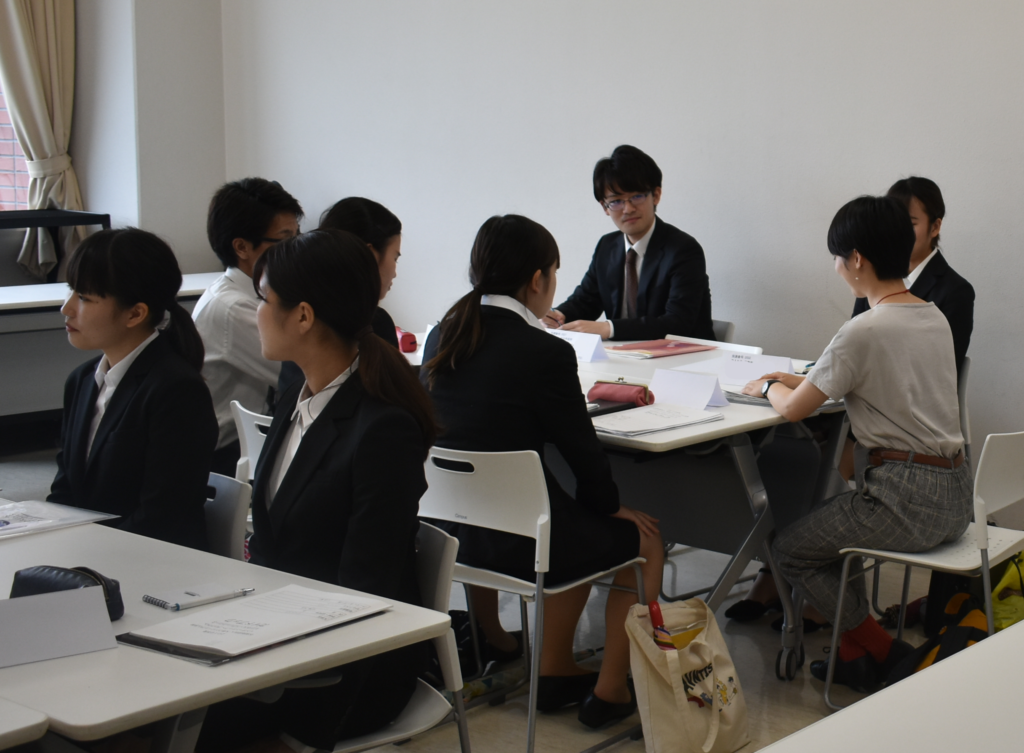
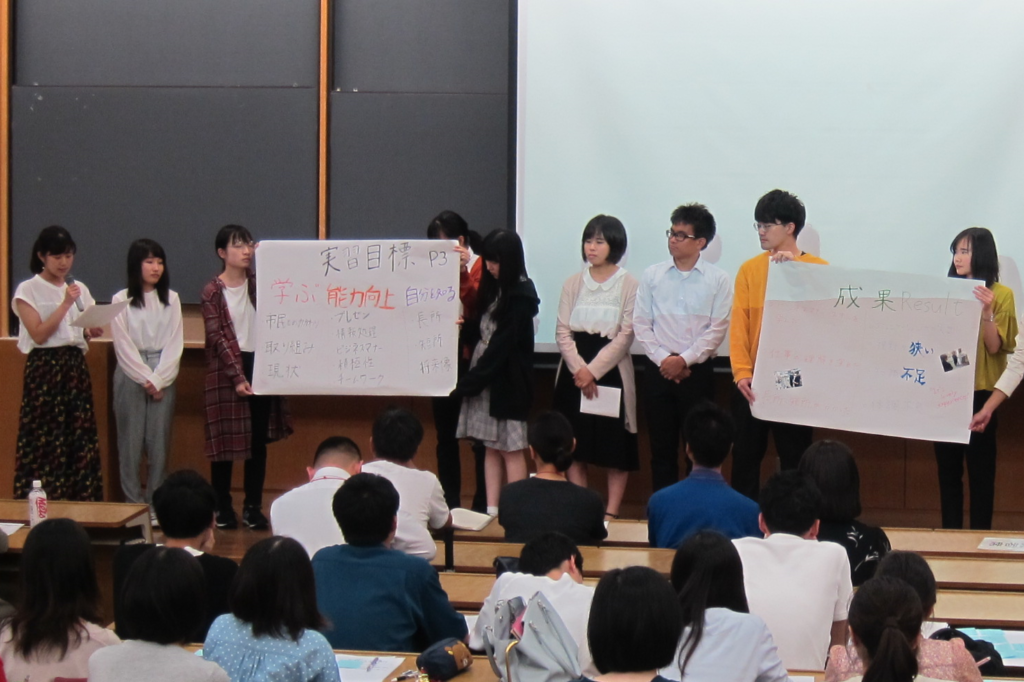
Ryukoku University Faculty of Law 3rd year student Kazuya Maeda Mr./Ms.
Internship: Uji City Hall
Q. What made you decide to take an internship at the University Consortium Kyoto?
A. I decided to take the course because I thought it would be a good opportunity to experience the work of city hall, which is difficult to get to know about because there are plenty of places to practice at public institutions such as city halls.
I wanted to contribute to the local government, so I chose a department at Uji City Hall where I could be involved in peace awareness-raising, which is of particular interest.
![]()
Q. What is the atmosphere like in the workplace?
A. I had an image that the work at the city hall was closed because it was mainly desk work, but I realized that the city hall staff are involved with the citizens in various aspects and are actively working.
In particular, the General Affairs Section, which I was indebted to, had a friendly and friendly atmosphere regardless of position, and I had the impression that there were many mild-mannered people who liked to support people, as it was a job that supported the lives of citizens.
![]()
Q. What did you like about the pre-study and what did you find useful?
A. In the seminar classes for each industry, we set the purpose and goals of the internship. By participating in the training based on these factors, I was able to confirm whether I had achieved my goals after the training.
![]()
Q. What does the post-study (practical experience exchange meeting) do?
A. Many of the trainees in my class went to public institutions, but at the practical training experience exchange meeting, the classes that had experienced practical training in various industries such as private companies jointly reported on their achievements. It was meaningful because I was able to learn about the differences between private companies and public institutions, and the achievements of other classes.
![]()
Q. What do you think you have grown through the internship?
A. I think I’ve learned to pay attention to my surroundings. Working adults have many opportunities to work as a team. I feel that the experience of finding my role in the group and leading to results by collaborating with others has led to my own growth.
![]()
Q. Message to those who are considering an internship
A. Even if you don’t look at it as a former student, I think this internship program is a great opportunity to have a good experience. The manners and experience cultivated through prior study and practical training will be useful not only in job hunting but also after becoming a member of society. Please give it a try.
![]()
Voices of seniors (excerpted from the 2019 questionnaire)
Overall satisfaction with the internship program 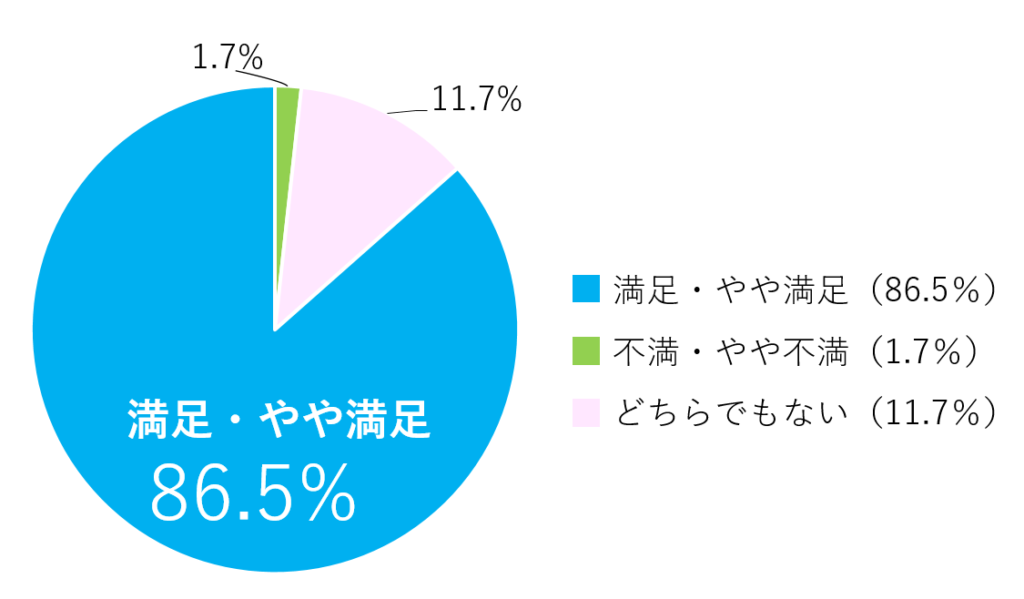

I’m glad I participated in the internship program!
・I was able to learn not only manners as a member of society, but also more important things such as cooperating with others.
・I was worried about whether my job hunting would go well, so I participated in this internship. I’m really glad that I participated, because I was a little less anxious.
・ It was not my first choice, but thanks to the Mr./Ms. of all the members and employees, it was very fulfilling.
I thought 10 days was a long time, but it was actually a precious 10 days. I learned a lot because it was 10 days.
・I was able to learn more as a working adult than as an office worker. I’m glad I was able to participate in this program.
About pre-study and post-study
・ There was less anxiety because there was pre- and post-study, and I was able to practice with peace of mind.
・I think it is good that there is a place for learning and presentations that will lead to the growth of students through pre- and post-internship training, as well as practical training.
・ I was able to learn the basics of becoming a member of society, such as business etiquette, in the lecture.
・In the seminar class, the cheerful and leading person enlivened the class, and it was fun overall.
・ There were times when I felt that the pre-study was troublesome, but I thought it was a good experience after finishing it.
Meeting people with different values
・I was worried at first, but I was able to exchange opinions with people from other universities and actually gain work experience, which led to my confidence.
・It was a good opportunity to interact with students from other universities. In the post-study session, it was good to be able to share the contents of the practical training that other students did.
・I was able to listen to the opinions of various students, and it was good to notice things that I had not noticed.
It was a good experience to meet students who were aiming for the same goal.
・Since we have different values, things we want to learn, and interests that we have different from each other, I think I was able to recognize many values in the seminar.
Grown! My consciousness has changed!
・I was able to clarify my own issues through this internship.
・It was a good opportunity to deepen my understanding of companies in the industry and improve my skills.
There was a gap between what I thought and what I actually worked, and I was able to learn about points that I did not know, as well as strengths and weaknesses.
・There are many opportunities to express my opinions, and I feel that I was able to overcome my discomfort with public speaking.
・I was able to improve my communication and presentation skills.
・Being able to gain experience as a member of society in the second year increased my motivation for future school life.
Inquiries
University Consortium Kyoto Internship Project Promotion Office
TEL 075-353-9106 FAX 075-353-9101
〒600-8216 Shimogyo-ku, Kyoto-shi, Nishitoin-dori, Shiokoji, Shimo-ku, Kyoto, Campus Plaza Kyoto
* Reception hours: Tuesday ~ Saturday 9:00 ~ 17:00 (excluding year-end and New Year holidays)
Facebook:https://www.facebook.com/consortium.kyoto.intern















